 April 19,
2021. One
of our
graduates,
Malungo
Germano,
published
an article
titled, “Humanity and Human
Rights,” at AIU.
Abstract: In December, 9th,
1998, the UN General Assembly
adopted the Declaration
on the Rights and Responsibility
of Individuals, Groups
and Organs of Society to Promote
and Protect Universality
Recognized Human Rights
and Fundamentals Freedoms.
This instrument, commonly
called United Nations Declaration
on Human Rights
Defenders recognizes the
rights and responsibility of individuals,
group and associations
to promote and to strive
for the protection and
realization of human
rights. The referred
Declaration
came to reinforce
the protection of
Human Rights Defenders,
in its article
12, it says, that everyone has
the right to participate in
peaceful activities against
violations of human rights.
Find his article here: http://
rep.aiu.edu/submissions/manager_
files/document/47694_Assignment%
20PHASE%202%2029.12.19%20
I%20am%20Malala.pdf
Malungo Germano
has completed a
Doctorate program
with a major in Humanities
& Human
Rights at Atlantic
International
University.
April 19,
2021. One
of our
graduates,
Malungo
Germano,
published
an article
titled, “Humanity and Human
Rights,” at AIU.
Abstract: In December, 9th,
1998, the UN General Assembly
adopted the Declaration
on the Rights and Responsibility
of Individuals, Groups
and Organs of Society to Promote
and Protect Universality
Recognized Human Rights
and Fundamentals Freedoms.
This instrument, commonly
called United Nations Declaration
on Human Rights
Defenders recognizes the
rights and responsibility of individuals,
group and associations
to promote and to strive
for the protection and
realization of human
rights. The referred
Declaration
came to reinforce
the protection of
Human Rights Defenders,
in its article
12, it says, that everyone has
the right to participate in
peaceful activities against
violations of human rights.
Find his article here: http://
rep.aiu.edu/submissions/manager_
files/document/47694_Assignment%
20PHASE%202%2029.12.19%20
I%20am%20Malala.pdf
Malungo Germano
has completed a
Doctorate program
with a major in Humanities
& Human
Rights at Atlantic
International
University.
 May 6,
2021. One of
our graduates,
Rafael
Eduardo
Ruiz Colón,
completed
a Doctorate
program with a major
in Psychology and recently
presented his thesis defense
which was graded with an A.
His thesis defense was titled,
What does old age mean? To
age or to take a trip?.
In his presentation Rafael
went on to explain that old
age has become difficult and
somewhat ambiguous, and
that we must all think of old
age because we are all on that
path. He said that we must
think of old age as a continuous
journey that must be worthy
to the end. He explained
that he has lived it through
his experiences and through
much of his congregation who
at the end of their journey
have not had the dignified
life they deserved to have on
their journey to the end.
We are very proud of you
Rafael and we wish you more
success in all of your professional
projects.
May 6,
2021. One of
our graduates,
Rafael
Eduardo
Ruiz Colón,
completed
a Doctorate
program with a major
in Psychology and recently
presented his thesis defense
which was graded with an A.
His thesis defense was titled,
What does old age mean? To
age or to take a trip?.
In his presentation Rafael
went on to explain that old
age has become difficult and
somewhat ambiguous, and
that we must all think of old
age because we are all on that
path. He said that we must
think of old age as a continuous
journey that must be worthy
to the end. He explained
that he has lived it through
his experiences and through
much of his congregation who
at the end of their journey
have not had the dignified
life they deserved to have on
their journey to the end.
We are very proud of you
Rafael and we wish you more
success in all of your professional
projects.
 April 21, 2021.
One of our
graduates,
Esther Coronel
de Iberkleid
has published
her eighth book on Amazon
titled, Manual - Motivation
guide for demoralized and
depressed students, aimed at
parents, teachers and students
at all levels of formal
and non-formal education (in
Spanish).
Summary: This is a different
manual-guide, elaborated
and generated from the
material created for a Seminar
organized for groups of parents,
teachers and students, in different
educational entities, for
several years. Each chapter was
called “program”, and refers to
the different sessions or modules
of the original seminar.
Although there are
some of the chapters
that seem to contain
repeated information,
this was very
necessary, in order
to be able to process
little by little, the new
concepts and at the
same time, begin to
erase and eliminate the social paradigms in the area
of education, which were no
longer needed. ...
You can find the book in
Kindle or Paperback format
here: Digital Version (Kindle)
http://www.amazon.com/dp/B091PB2VWH
Physical Book Version
(Paperback) http://www.amazon.
com/dp/B091WJGP3D You can
find all the books by
this author on Amazon:
https://tinyurl.com/
ybsykfpk
Esther has completed
a Doctorate
program in Business
Project Management,
Education and
Personal Development
at AIU.
April 21, 2021.
One of our
graduates,
Esther Coronel
de Iberkleid
has published
her eighth book on Amazon
titled, Manual - Motivation
guide for demoralized and
depressed students, aimed at
parents, teachers and students
at all levels of formal
and non-formal education (in
Spanish).
Summary: This is a different
manual-guide, elaborated
and generated from the
material created for a Seminar
organized for groups of parents,
teachers and students, in different
educational entities, for
several years. Each chapter was
called “program”, and refers to
the different sessions or modules
of the original seminar.
Although there are
some of the chapters
that seem to contain
repeated information,
this was very
necessary, in order
to be able to process
little by little, the new
concepts and at the
same time, begin to
erase and eliminate the social paradigms in the area
of education, which were no
longer needed. ...
You can find the book in
Kindle or Paperback format
here: Digital Version (Kindle)
http://www.amazon.com/dp/B091PB2VWH
Physical Book Version
(Paperback) http://www.amazon.
com/dp/B091WJGP3D You can
find all the books by
this author on Amazon:
https://tinyurl.com/
ybsykfpk
Esther has completed
a Doctorate
program in Business
Project Management,
Education and
Personal Development
at AIU.
 May, 2019. These graduate students completed the majority of
the requirements to obtain honors, which included a 4.0 GPA,
published works, recommendation from their respective advisors,
patent a product, etc. Congratulations to both of them!
May, 2019. These graduate students completed the majority of
the requirements to obtain honors, which included a 4.0 GPA,
published works, recommendation from their respective advisors,
patent a product, etc. Congratulations to both of them!
 May 14, 2021. One of
Nigeria’s foremost industrial
and chemical
companies, Machor
Industrial & Chem.
Co., Nigeria Ltd, has
won the 2020/2021
award for Excellence
and Innovation for its performance
in the nation’s oil and
gas sector.
The award was conferred
on the Managing Director of
Machor Industrial and Chemical
Company Ltd, Mr. Monday
Iheanacho Agoha, by the Institute
of Oil and Gas Research
Institute and Hydrocarbon
Studies, at its Product Forum,
“Abuja2021”, during a grand reception
held at the prestigious
Nicon Luxury Hotel, Abuja.
The Machor Company, with
headquarters in Lagos, is a
leading player in chemicals,
and raw materials for oil,
cosmetics, food and industrial
and pharmaceutical industries
in the country.
The event was chaired by
the Chairman of Council and
Council Chairman, Quality
and Standardisation Directorate,
Institute of Oil and Gas
Research and Hydrocarbon
Studies (IOGRHS), Prof John
Akanya, FIOGR, OON.
In his speech, he
commended the
awardees for their
contribution to
the growth of the
country’s economy.
Urging them to invest
more in research
and development
of the sector , he added, “The
journey is ongoing. You must
work more on standardization
of quality”.
Speaking on the sidelines of
the event, Mr. Agoha said he
was surprised at his nomination
for the award. “We are
encouraged by this award. It
will surely propel us to continue
to work harder to serve
the nation better. I give God
Almighty, who has been there
and who will continue to be
there for us, all the glory”.
Monday Iheanacho Agoha
is completing a Doctorate
program in Management
at Atlantic International
University.
May 14, 2021. One of
Nigeria’s foremost industrial
and chemical
companies, Machor
Industrial & Chem.
Co., Nigeria Ltd, has
won the 2020/2021
award for Excellence
and Innovation for its performance
in the nation’s oil and
gas sector.
The award was conferred
on the Managing Director of
Machor Industrial and Chemical
Company Ltd, Mr. Monday
Iheanacho Agoha, by the Institute
of Oil and Gas Research
Institute and Hydrocarbon
Studies, at its Product Forum,
“Abuja2021”, during a grand reception
held at the prestigious
Nicon Luxury Hotel, Abuja.
The Machor Company, with
headquarters in Lagos, is a
leading player in chemicals,
and raw materials for oil,
cosmetics, food and industrial
and pharmaceutical industries
in the country.
The event was chaired by
the Chairman of Council and
Council Chairman, Quality
and Standardisation Directorate,
Institute of Oil and Gas
Research and Hydrocarbon
Studies (IOGRHS), Prof John
Akanya, FIOGR, OON.
In his speech, he
commended the
awardees for their
contribution to
the growth of the
country’s economy.
Urging them to invest
more in research
and development
of the sector , he added, “The
journey is ongoing. You must
work more on standardization
of quality”.
Speaking on the sidelines of
the event, Mr. Agoha said he
was surprised at his nomination
for the award. “We are
encouraged by this award. It
will surely propel us to continue
to work harder to serve
the nation better. I give God
Almighty, who has been there
and who will continue to be
there for us, all the glory”.
Monday Iheanacho Agoha
is completing a Doctorate
program in Management
at Atlantic International
University.
 Call for Papers
This Conference will be held
9–10 December 2021 in Porto,
Portugal.
Our relationship with the
body and the material world
has been transforming following
processes of digitalization
that were in motion before
Covid-19 but, as consequence,
were potentially accelerated. It
is urgent to foster research on
what is the place for physicality
and (i)materiality in our
time. Contributions from the
fields of Artistic Practices
(Cinema, New Media Art,
Digital Art, Music and Sound
in particular), Artistic Studies
and Cultural Studies, Heritage
Studies and Conservation
and Restoration are welcome,
in multiple formats: papers,
performances, artworks and
installations, posters, audiovisual
and digital essays.
Keynotes and Artist talk
Doug Bailey · Sasha Litvintseva
· Beny Wagner
Deadline for submissions
30 June 2021
Acceptance notification
31 Julio 2021
Visit the website:
https://artes.porto.ucp.pt/pt/
graduateconference
Call for Papers
This Conference will be held
9–10 December 2021 in Porto,
Portugal.
Our relationship with the
body and the material world
has been transforming following
processes of digitalization
that were in motion before
Covid-19 but, as consequence,
were potentially accelerated. It
is urgent to foster research on
what is the place for physicality
and (i)materiality in our
time. Contributions from the
fields of Artistic Practices
(Cinema, New Media Art,
Digital Art, Music and Sound
in particular), Artistic Studies
and Cultural Studies, Heritage
Studies and Conservation
and Restoration are welcome,
in multiple formats: papers,
performances, artworks and
installations, posters, audiovisual
and digital essays.
Keynotes and Artist talk
Doug Bailey · Sasha Litvintseva
· Beny Wagner
Deadline for submissions
30 June 2021
Acceptance notification
31 Julio 2021
Visit the website:
https://artes.porto.ucp.pt/pt/
graduateconference
 April 7, 2021. One of our
alumni, Dr. Siva Mahendran,
wrote a poem for the AIU
Circle of Abundance contest.
Abundance
in togetherness
The more we get together
April 7, 2021. One of our
alumni, Dr. Siva Mahendran,
wrote a poem for the AIU
Circle of Abundance contest.
Abundance
in togetherness
The more we get together
| Pablo Javier Chami Bachelor of International Business International Business Argentina |
John Chuol Muon Doctor of International Relations International Relations Australia |
Yunji Wilson Yai Master of Science Geomatics Engineering Cameroon |
Sylvie Tabi Ojong Master of Education Education Cameroon |
Ntui Ebot Gabriel Doctor of Science Reproductive Clinical Science Cameroon |
Olufemi Ayoola Olawale Doctor of Philosophy Organizational Leadership Canada |
||||||
| José Daniel Barrera Sáez Doctor of Business Administration Business Administration Chile |
Álvaro Marcelo Contreras Marambio Bachelor of Business Administration Business Administration Chile |
Alvaro Hernando Rincón Trujillo Bachelor of Business Administration Business Administration Colombia |
Yelitza Indira Caicedo Ramos Master of Education Education and Natural Science Colombia |
Carlos Ernesto Guerra Nieto Doctor of Business Administration Strategic Planning Colombia |
Henry Doria Doria Master of Computer Engineering Computer Information Systems Colombia |
||||||
| Bruce Luaba Mudibi Master of Project Management Project Management Congo (DRC ) |
Eugenia Coto López Doctor of Education Methods of Investigation Costa Rica |
Pablo Henriquez Severino Doctor of Latin America Literature Latin American Literature Dominican Republic |
Maribel Gil Vilorio Master of English Education English Teaching Dominican Republic |
Rodolfo Michael Tavárez Fernández Master of Telecommunications Telecommunications Dominican Republic |
Francisco Javier Mora Espín Bachelor of Science Computer Science and Systems Engineering Ecuador |
||||||
| Rogelio Ricardo Jimenez Yepez Bachelor of Science Agronomy Engineering Ecuador |
Juan Alberto Salinas Hernandez Master of Business Management Business Management El Salvador |
Samba Juma Jallow Bachelor of Science Public Health and Nutrition Gambia |
Vicente Bracho Garay Bachelor of Communication Communication Germany |
Raymundo Rodríguez Baeza Doctor of Science Strategic Planning vvGuatemala |
Alvaro Leonel Vásquez Berganza Bachelor of Science Civil Engineering Guatemala |
||||||
| Ernestina Amparo Polanco Girón Bachelor of Business Administration Business Administration Guatemala |
Kaysha Camillia Dixon Wright Master of Education Educational Administration Jamaica |
Ian Leonard Emanuel Doctor of Philosophy Organizational Behavior Jamaica |
Maxwell Ntchentche Bachelor of Financial Accounting Accounting Malawi |
Kampila Humphreys Nsona Doctor of Science Globa l Health Malawi |
Myriam Oropeza Morales Bachelor of Business and Economics Management and Direction Mexico |
||||||
| Iván Cruz Cruz Pedraza Doctor of Public Health Public Health Mexico |
Hendro Jenuve de Júlio Muchiguere Doctor of Business Administration Business Management Mozambi que |
Enna Gumbs Master of Science Counseling Namibia |
Serah Jacob Anzaku Bachelor of Science Human Resource Management Nigeria |
Olanrewaju Kazeem Bakinson Doctor of Science Public Administration Nigeria |
Ishaku Ardo Buba Master of Science Agriculture Marketing Nigeria |
||||||
| Obaroh, Rebbecca Yemi Bachelor of Human Resources Human Resources Nigeria |
Leonard Michael Onyinyechi Aminigbo Doctor of Philosophy Geospatial Information Systems Nigeria |
Okoro Roli Ego Doctor of Philosophy Public Administration Nigeria |
Victor Ogoegbunam Obimma Doctor of Philosophy Project Management Nigeria |
Awuzie Ozioma Kaosisochukwu Certificate of Science Health Science Nigeria |
Rafey A Siddiqui Doctor of Science Water Policy and Management Pakistan |
||||||
| Melva Alvarado Pineda Doctor of Education Research Panama |
Gregory Mario Gilbert Monfardino Bachelor of Science Diet and Nutrition Panama |
Demetrio Cabrera Román Doctor of Science Public Health Peru |
Nicanor Williams Pacheco Huamán Doctor of Science Mechanical Engineering Peru |
Leonel Meléndez Soler Bachelor of Accounting Accounting and Finance Puerto Rico USA |
Jacqueline Martinez Irizarry Doctor of Education Education Puerto Rico |
||||||
| Rafael Eduardo Ruiz Colón Doctor of Psychology Psychology Puerto Rico |
Aulio Anselmo Hernandez De Aza Bachelor of Science Civil Engineering Puerto Rico |
Stephanie Lizanne King Master of Education Educational Management Saint Lucia |
Summia Naveed Master of Science Nutrition Science Saudi Arabia |
Mohamoud Abdi Ahmed Doctor of Education Education Somalia |
Lefora France Mafete Doctor of Business Administration Business Administration South Africa |
||||||
| Genis Tosquella Santanyes Bachelor of Business Administration Business Administration Spain |
Luis Alberto Sánchez Guerra Bachelor of Science Anti-Terrorism Security Spain |
María del Pilar Abollado Amo Bachelor of Business Administration Business Administration Spain |
Fabian Leonard Bergen Bachelor of Science Mechanical Engineering Suriname |
Mbuso Mabuza Doctor of Public Health Epidemiology and Health Innovations Swaziland |
Robinson Ogwang Doctor of Business Administration Business Administration Uganda |
||||||
| Josephine Onyia Doctor of Education Educational Administration United Arab Emirates |
Wiltfer Mauricio Ordóñez Delgado Bachelor of Arts Arts and Paint United Arab Emirates |
Patrick Gregory Henry Bachelor of Science Refrigeration and Airconditioning United Kingdom |
Annabell Zavala Zavala Bachelor of Arts Languages USA |
Laura Yuranny Bocanegra Orozco Bachelor of Science Psychology USA |
Naveed Ahmad Bachelor of Science Computer Science USA |
||||||
| Alvaro Passaro Ferrari Doctor of Philosophy Psychology USA |
Maria Elena Zegarra Vasquez Master of Science Biotechnology USA |
Fidelis Ngochia Bachelor of Science Occupational Safety and Health USA |
Marvin Leal Hurtado Bachelor of Science Architecture USA |
Joiran Ibrahin Ruiz Castillo Master of Science Civil Engineering Venezuela |
Geroge Thole Bachelor of Science Animal Science Zimbabwe |
||||||


Abstract
This study aimed at assessing
the knowledge, attitude
and practice of infection
preventive measures against
coronavirus (infection) among
caregivers at Kigali University
Teaching Hospital / Centre
Hospitalier Universitaire de
Kigali (CHUK), Rwanda.
Results have showed that
knowledge, attitude and practice
about infection preventive
measures against covid 19
were 74.45% ,83% and 60.30%
respectively. Residence place,
wealth and level of education
were associated with level of
knowledge. More studies are
needed to know the factors
associated with poor knowledge
about coronavirus ( covid
19) among some groups of
population including widowers,
rural population, …
Introduction
Coronavirus (Covid-19) infection
is pandemic of public
health concer since 2019-2020
starting in Wuhan China in
2019 and affecting the global
througout 2020.
Globally, Covid-19 confirmed
cases are estimated at
over 2 millions with an overall
cumulative of 200,000 deaths1.
It has come with drastic consequenses
to the community
economically, emotionally as
well as psychologocally.
The disease has no vaccine
or treatment and hence
infection prevention and
control are the only solution
to prevent and hence reduce
the burden of Coronavirus
infection worldwide. Infection
prevention and control
measures to stop the spread of
Covid-19 infection have been
put into place including, social
distancing, staying at home,
travel cessation, … n2.
Covid-19 can be transmitted
via air droplets, it can remain
in air and on metallic surfaces
for and thus it can be easily
transmitted from humans to
humans2.
Measures to control Coronavirus
infection transmission
human-to-human have been:
suspension of public transportation,
closing public spaces,
close management of communities
as well as isolation and
caring of infected people and
suspected cases. The proposed
measures include quarantine
of different cities in different
countries, social distancing
and lockdown6.
Peoples adherence to the
above mentioned control
measures is affected by their
knowledge, attitudes and
practices. This is in accordance
with the KAP theory2.
This study aimed at providing
information about practice
(or adherence) to Covid-19
preventive measures (infection
control measure) as well as the
gap the population’s knowledge
and their practice.
Being aware of level of
knowledge about infection
control measures against
Covid-19 among caregivers
at CHUK can lead to
proper interventions in health
education and health promotion.
Findings from this
study will orient Covid-19
response team to the right
interventions.
Methods
Design
This is a cross-sectional
study.
Ethical approval
Approval for data collection
has been obtained from CHUK
ethical committee. Confidentiality
and anonymity has been
insured and questionnaire will
not include names or any other
identifier specific to study
participants’s information.
Consent form of participation
been signed by each study
participant before answering
to interview questions.
Recruitment procedure
The target population was
caregivers who were taking
care of their patients at CHUK
since 1st -14th May 2020.
Statistical analysis
Data entry was through
excel then imported in SPSS
version 24 for analysis. Descriptive
statistics (means,
SD and percentage frequencies)
were computed for all
patients and responses from
the survey. Comparison of
means (scores of knowledge,
attitude and practice) were
performed using T-test or
analysis of variance (ANOVA)
as appropriate.
Results
Marital status was a significant
predictor of knowledge
score. For example, compared
to other marital statuses,
single unmarried respondents
had significantly higher
knowledge score even when
the residence place, urban and
rural, was controlled for (16 ±
2.1 vs 14.9 ± 2.1, p=0.005) .
Factors associated with
knowledge scores in the general
population in this study
were; residence place, wealth
index, level of education and
marital status.
The latter two were also
significantly associated with
knowledge scores among
urban population) but there
was no significant predictor
of knowledge, attitude and
practice scores among rural
respondents.
The wealth index had a
negative association with
practice scores among urban
respondents even though it
had an otherwise positive
association with knowledge
Image: scores in overall respondents.
Even though the employment
status did not significantly
predict knowledge and
practice scores among all
respondents in general, unemployed
respondents from urban
areas significantly expressed
better practice score against
Covid-19 compared to their
counterparts from rural areas
(8.5±1.9 vs 7.5±2.0, p=0.043).
Discussion
Covid-19 is a new killer virus
first detected in December
2019. To date, there has
been limited published data
on knowledge, attitude and
practice towards Covid-19 in
Rwanda. To the better of our
knowledge, this is the first
study conducted on knowledge,
attitude and practice
about preventive measures
against Covid 19. Assessing
level of knowledge ,attitude
and practice is of utmost
importance for the country in
order to set appropriate strategies
for health education and
promotion as well as management
of this pandemic.
The mean score of knowledge
of this study population
(15.2 +/- 2.6 in urban and
14.6+/- 2.4 in rural areas respectively)
is above the one of
Tanzanian population 9.3+/-2
over 12 according to their findings8.
But this comparison is
not accurate because questions
on knowledge were not
similar in both studies.
Education level, marital
status, residence and wealth
index are significantly associated
with score of knowledge
about Covid-19. This may be
due to usual ability and willingness
to retain new knowledge
or information (which
can be relatively better among
educated or highly educated
population), access to information
which can be different
due to respective residence
places and wealth indices.
A big number (87% of participants)
know main symptoms
and this percentage is
superior to the one of medical
students in India9. Participants
of this study know that
early treatment is contributive
to cure from the disease at a
bigger percentage (93%versus
92.4% found among indian
medical students)9.
The average score for right
answers about Covid-19
was 74.45%. This score is
below the one of health care
providers in Rwanda (this is
probably because health care
providers have background
knowledge from school in infectious
disease and epidemiology
of diseases. The mean
score for positive attitude
83%. The score for right practice
is 60.30%.
A big number of respondents
(90%) believe that Covid-
19 will be controlled and
only minority of respondents
went to crowdy places (30%),
findings similar to the ones of
Chinese population2.
Conclusion
Our findings show that more
studies are needed about factors
associated with low level
of knowledge about Covid-19
among widowers, ubudehe
category 1 and 2, rural population.
Health education and
health promotion interventions
are needed in order
to improve knowledge and
practice of infection control
measures against Covid-19
especially among those
above mentioned groups with
bigger gaps.
REFERENCES. 1. Sherman A, Breuninger K, Mui Y, Sloan KJ. Coronavirus
updates: Three West Coast states announce pact on reopening economy. https://
www.cnbc.com/2020/04/13/coronavirus-latest-updates.html. Published 2020. Accessed April
14, 2020. 2. Zhong B-L, Luo W, Li H-M, et al. Knowledge, attitudes, and practices
towards Covid-19 among Chinese residents during the rapid rise period
of the Covid-19 outbreak: a quick online cross-sectional survey. Int J Biol Sci.
2020;16(10):1745-1752. doi:10.7150/ijbs.45221 3. Cases C, Cases TC. Rwanda
Countries: https://www.worldometers.info/coronavirus/country/rwanda/. Published 2020. 4.
Journal NE. Coronavirus may. 2020. 5. Tina BY, Saey H. Vaccine scientists target
coronavirus. 2012. 6. Sorooshian S. Quarantine Decision due to Coronavirus
Pandemic. Electron J Gen Med. 2020;17 (4). doi:10.29333/ejgm/7862 7. Assessment
RR. Outbreak of acute respiratory syndrome associated with a novel
coronavirus , Wuhan , China ; first update. 2020;00 (January). 8. Rugarabamu
S, Ibrahim M, Byanaku A. Knowledge, attitudes, and practices (KAP) towards
Covid-19: A quick online cross-sectional survey among Tanzanian residents.
2020;216:1-18. 9. Azlan AA, Hamzah MR, Jen T, Id S, Hadi S, Id A. Public
knowledge, attitudes and practices towards Covid-19: A cross-sectional study in.
2020:1-15. doi:10.1371/journal.pone.0233668

We live in an extraordinary
world. I imagine
that everyone who reads the
previous sentence will be
thinking about many events in
our wonderful world.
Yes, we have such a developed
science that it has
allowed us to send the Perseverance
Rover to investigate
the planet Mars. In science we
are that every day the secrets
of the natural world are
less; natural world that also
includes living beings.
We talk about Quantum
Physics, Nanotechnology,
Artificial Intelligence; the
secrets of this world in which
we live are being left behind.
Every day we discover more
factors that make learning
easier to achieve.
We seek to have the largest
number of learning centers; learning that often doesn’t
require physical presence.
We do commerce in the
same way: every day is faster,
every day more products, every
day more elements created
by human beings to make life
more comfortable. It seems
that there are no limits to
commercialize with products
and even with culture.
Culture is what human
beings, in their existence, are
building and leaving to the
new generations. Civilization
is what we build in the
present.
There is an extraordinary
ability to put products anywhere
in the world in seconds.
When we say that culture is
marketed we mean that it is,
through marketing, creating
similar needs so that mass
production is faster. We are
talking about copying objects
or traditions that identify it.
Marketing has reached
such an extreme that the
communication of what has
been called the “global village”
generates needs for this or
that product and the market is
an endless race.
Work can also be had anywhere
in the world; every day
physical presence becomes
less necessary.
The State, created for the
organization of human life,
provided the rules or laws
to maintain space for each
First day at school (Greenland)
social group that has been
called Nation. The State as a
social organization contributes
elements of coexistence
to human groups that share a
culture and a civilization.
We have a world that any
existing on another planet
would say; we are going to live
on planet Earth because we
will have the dream life. Oh
surprise! What happens in this
world built by human beings?
Oh human beings! Humans
are a surprise. Anyone in their
right mind would say: It’s
impossible to believe that human
beings while building are
destroying what they do. It’s
impossible to believe. Believe it
because you see what they do.
What about science? With
science, it happens that, faced
with an interpretation of the
concept of freedom, human
groups are dedicated to creating
explanations that don’t follow
the procedure of thought
that has best been created by
human beings for explanations
of facts and events that
surround us. Those groups say
what they want and where
they want and disorient part
of society.
Science has given us
tangible fruits of the kind of
organization of thought that
needs to be done. A procedure
is needed that agrees with
the explanations given by the
other aspects of knowledge.
The aforementioned situation
generates a lot of noise.
You have to look for proven
and proven explanations so as
not to fall into such a discordant
world.
Something special happens
with learning: learning is
not for everyone. To learn
you need mental space
to do it, you need resources
and all the inhabitants of this
planet don’t have it.
Learning is part of privileged
groups because there’re
many nations that don’t have
the necessary organization to
give everyone an opportunity.
The world of marketing is
for elite. In a world of extraordinary
resources we can see
hunger in other groups we can
see children working hours
and hours longer than many
adults. In this world with a
social organization of human
groups in States, the rules of
coexistence aren’t respected
by all and we have undeclared
wars and groups that act
above all rights, taking away
all opportunities from others.
What happen to the natural
resources that generate the
life of comforts of a part of
the world’s population? Natural
resources are extracted
without any control. They
are extracted and there is no
care to see if they are renewable
or not. There is also
the dump anywhere of the
waste from the production of
objects that aren’t destroyed
in the short term.
A planet that can be a wonderful
place for everyone has
become a place for a pleasant
life for a few. All the evils
that humanity has created
throughout History are now joined by a pandemic that is
leaving deaths everywhere.
Let us hope with all the
faith and also the reasoning
that this pandemic teaches
us, makes us understand that
we can’t build and at the same
time destroy. It seems that the
construction we do is at the
expense of the other.
We have to learn to generate
opportunities for others at the
same time that we generate
our own.
The human condition with
which we have grown as a
society is to seek what I want
and forget the other. As long
as we don’t learn that the
world we live in is a social
and natural world and that it
has to be a life of opportunities
for each one. It has to be
a world of sustainable development,
a development of
opportunities for all instead
of always looking for a way to
benefit from the other.
When we understand that
we have to contribute to the
growth and sustainability
of the planet, to the growth
and opportunities for each
human being, then we will
have reached the world that
is possible for all. Analyzing
all the development achieved,
the questions of the reasons
why we don’t achieve a life of
satisfaction and peace are not
necessary.
Peace is not the peace of
graves; peace is coexistence
and educational opportunity,
of the necessary goods, for every
living being on this planet.
We do many extraordinary
activities but at the same time
we destroy what we build. We
need to learn to live with others.
We need to learn to create and grow what we create. We
need to learn to give the space
of life to the other and within
that other to our planet.
If life were possible for us
on another planet, let the beings
that inhabit there not say:
Human beings arrived that
what they build in the following
space of time they destroy
and on that they destroy
themselves.
Being confined by the
pandemic gives time to
think. Hopefully the big
learning is: We are beings of
learning. We are beings of
personal development. We
are human beings to have
and allow the development
of opportunities for each person
born on this planet.
Our planet also needs life to
give us life. Life of well-being
and opportunities for each
one; for all.
The pandemic has taught us the following
We must take care of each other no matter
where we live on the planet.
We must take care of each other regardless
of social differences.
We must provide the opportunity to learn to everyone
because we are human beings of opportunities.
We must care for the planet because we live on it.
If we don’t do the above; we are going to die.
We want to die; we already know what we shouldn’t do.
If we want to live, we also know what we have to do.
We have to change.
There’s no more; here we are.
BIBLIOGRAPHY. Naciones Unidas- Página oficial. Retrieved from
http://www.un.org/es/index.html | Organización de las Naciones Unidas para
la Educación, la Ciencia y la Cultura (UNESCO), Página oficial. Retrieved
from http://www.unesco.org/new/es
 Inclusive education is when all students,
regardless of any challenges
they may have, are placed in age-appropriate
general education classes that are
in their own neighborhood schools to
receive high-quality instruction, interventions,
and supports that enable them
to meet success in the core curriculum.
1 Use a variety of instructional
formats. Start with whole-group
instruction and transition to flexible
groupings which could be small groups,
stations/centers, and paired learning.
Using technology such as interactive
whiteboards is related to high student
engagement. For younger students,
these are often teacher-led but for older
students, they can be student-led with
teacher monitoring.
2 Ensure access to academic curricular
content. Make sure that all
students hear instructions, that they do
indeed start activities, that all students
participate in large group instruction,
and that students transition in and out
of the classroom at the same time.
3 Apply universal design for learning.
Include multiple ways of
representing content to students and
for students to represent learning back
(modeling, images, graphic organizers,
oral and written responses, technology).
Let SWDs have large print, use
headphones, have a peer write their
dictated response, draw a picture instead,
use calculators, have extra time.
Read full text:
Inclusive education is when all students,
regardless of any challenges
they may have, are placed in age-appropriate
general education classes that are
in their own neighborhood schools to
receive high-quality instruction, interventions,
and supports that enable them
to meet success in the core curriculum.
1 Use a variety of instructional
formats. Start with whole-group
instruction and transition to flexible
groupings which could be small groups,
stations/centers, and paired learning.
Using technology such as interactive
whiteboards is related to high student
engagement. For younger students,
these are often teacher-led but for older
students, they can be student-led with
teacher monitoring.
2 Ensure access to academic curricular
content. Make sure that all
students hear instructions, that they do
indeed start activities, that all students
participate in large group instruction,
and that students transition in and out
of the classroom at the same time.
3 Apply universal design for learning.
Include multiple ways of
representing content to students and
for students to represent learning back
(modeling, images, graphic organizers,
oral and written responses, technology).
Let SWDs have large print, use
headphones, have a peer write their
dictated response, draw a picture instead,
use calculators, have extra time.
Read full text:
 A team of palaeontologists in Mexico
have identified a new species
of dinosaur after finding its 72 millionyear-
old fossilized remains almost a
decade ago, Mexico’s National Institute
of Anthropology and History (INAH)
said on Thursday [May 13th]. The new
species, named Tlatolophus galorum,
was identified as a crested dinosaur
after 80% of its skull was recovered,
allowing experts to compare it to other
dinosaurs of that type.
The investigation ... began in 2013
with the discovery of an articulated tail
in the north-central Mexican state of
Coahuila, where other discoveries have
been made. “Once we recovered the
tail, we continued digging below where
it was located. The surprise was that
we began to find bones such as the femur,
the scapula and other elements,”
said Alejandro Ramírez, a scientist involved
in the discovery. Later, the scientists
were able to collect, clean and
analyze other bone fragments from the
front part of the dinosaur’s body.
The palaeontologists had in their
possession the crest of the dinosaur,
which was 1.32 meters long, as well
as other parts of the skull: lower and
upper jaws, palate and even a part
known as the neurocranium, where
the brain was housed, INAH said. ...
Read full text:
A team of palaeontologists in Mexico
have identified a new species
of dinosaur after finding its 72 millionyear-
old fossilized remains almost a
decade ago, Mexico’s National Institute
of Anthropology and History (INAH)
said on Thursday [May 13th]. The new
species, named Tlatolophus galorum,
was identified as a crested dinosaur
after 80% of its skull was recovered,
allowing experts to compare it to other
dinosaurs of that type.
The investigation ... began in 2013
with the discovery of an articulated tail
in the north-central Mexican state of
Coahuila, where other discoveries have
been made. “Once we recovered the
tail, we continued digging below where
it was located. The surprise was that
we began to find bones such as the femur,
the scapula and other elements,”
said Alejandro Ramírez, a scientist involved
in the discovery. Later, the scientists
were able to collect, clean and
analyze other bone fragments from the
front part of the dinosaur’s body.
The palaeontologists had in their
possession the crest of the dinosaur,
which was 1.32 meters long, as well
as other parts of the skull: lower and
upper jaws, palate and even a part
known as the neurocranium, where
the brain was housed, INAH said. ...
Read full text:
 For the first time, scientists have
created embryos that are a mix of
human and monkey cells. The embryos,
described in the journal Cell, were
created in part to try to find new ways
to produce organs for people who need
transplants, said the international
team of scientists who collaborated
in the work. But the research raises a
variety of concerns.
“My first question is: Why?” said
Kirstin Matthews, a fellow for science
and technology at Rice University’s
Baker Institute. “I think the public is
going to be concerned, and I am as
well, that we’re just kind of pushing
forward with science without having
a proper conversation about what we
should or should not do.”
Still, the scientists who conducted
the research, and some other bioethicists
defended the experiment. “This is
one of the major problems in medicine
—organ transplantation,” said Juan
C. Izpisua, a professor in the Gene
Expression Laboratory of the Salk
Institute for Biological Sciences in La
Jolla, Calif., and a co-author of the Cell
study. “The demand for that is much
higher than the supply.”
“I don’t see this type of research being
ethically problematic,” said Insoo
Hyun, a bioethicist at Harvard University.
“It's aimed at lofty humanitarian
goals.”
For the first time, scientists have
created embryos that are a mix of
human and monkey cells. The embryos,
described in the journal Cell, were
created in part to try to find new ways
to produce organs for people who need
transplants, said the international
team of scientists who collaborated
in the work. But the research raises a
variety of concerns.
“My first question is: Why?” said
Kirstin Matthews, a fellow for science
and technology at Rice University’s
Baker Institute. “I think the public is
going to be concerned, and I am as
well, that we’re just kind of pushing
forward with science without having
a proper conversation about what we
should or should not do.”
Still, the scientists who conducted
the research, and some other bioethicists
defended the experiment. “This is
one of the major problems in medicine
—organ transplantation,” said Juan
C. Izpisua, a professor in the Gene
Expression Laboratory of the Salk
Institute for Biological Sciences in La
Jolla, Calif., and a co-author of the Cell
study. “The demand for that is much
higher than the supply.”
“I don’t see this type of research being
ethically problematic,” said Insoo
Hyun, a bioethicist at Harvard University.
“It's aimed at lofty humanitarian
goals.”
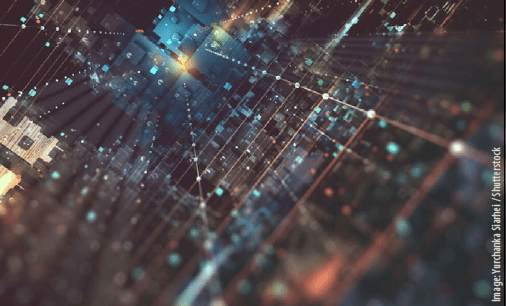 At the end of last year, a monumental
breakthrough was
announced with the first case of
long-distance, high-fidelity quantum
teleportation. This was quickly followed
by the creation of a cryogenic
quantum computer chip, and even a
hologram using quantum entanglement
just after that. You could say it
has been a pretty big few months for
the eventual goal of a quantum Internet,
which could theoretically change
everything when it comes to computing
speed, privacy, and capabilities.
However, new research suggests that
could be even closer than we think.
In a study conducted by two institutions
in the Netherlands, scientists
have created the first quantum
network using quantum entanglement,
successfully connecting three devices
together. The research could lay the
groundwork for creating a large-scale
quantum network, a dream for many
scientists in the field. Their work was
published in the journal Science.
“This is the first time a network
has been constructed from quantum
processors,” said lead author Ronald
Hanson in an interview with Inverse.
“A single direct link between two
processors has been shown on many
platforms in the past decade, but no
network had been achieved.” A quantum
computer differs from a ...
Read full text
At the end of last year, a monumental
breakthrough was
announced with the first case of
long-distance, high-fidelity quantum
teleportation. This was quickly followed
by the creation of a cryogenic
quantum computer chip, and even a
hologram using quantum entanglement
just after that. You could say it
has been a pretty big few months for
the eventual goal of a quantum Internet,
which could theoretically change
everything when it comes to computing
speed, privacy, and capabilities.
However, new research suggests that
could be even closer than we think.
In a study conducted by two institutions
in the Netherlands, scientists
have created the first quantum
network using quantum entanglement,
successfully connecting three devices
together. The research could lay the
groundwork for creating a large-scale
quantum network, a dream for many
scientists in the field. Their work was
published in the journal Science.
“This is the first time a network
has been constructed from quantum
processors,” said lead author Ronald
Hanson in an interview with Inverse.
“A single direct link between two
processors has been shown on many
platforms in the past decade, but no
network had been achieved.” A quantum
computer differs from a ...
Read full text
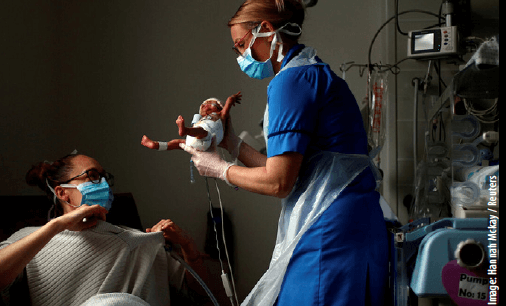 Since the start of the coronavirus
pandemic, it has become increasingly
clear that Covid-19 hits pregnant
women harder than the general population.
Now, one of the first large studies
with a proper control group has firmed
up earlier evidence for how the virus
can alter the course of pregnancy and
harm mothers and their newborns.
The study of more than 2,100 pregnant
women enrolled at hospitals in 18
countries found that, compared with
uninfected pregnant women, those
with Covid-19 are at higher risk for
severe illness, death, pregnancy complications,
and preterm birth. Those
results underscore the importance of
including pregnant women in priority
groups for Covid-19 vaccines and
limiting their exposure to ill people,
says corresponding author Aris Papageorghiou,
a fetal medicine specialist at
the University of Oxford.
“This is a great study,” says physician,
epidemiologist, and public health specialist
Nathalie Auger of the University
of Montreal Hospital Research Centre,
who was not involved with the research.
“They followed women through pregnancy,
which is a really great design,
and helped confirm the previous studies
that are much easier to critique.” Many
studies have linked pregnancy to worse
Covid-19 outcomes, but they have either
included too few participants to draw
firm conclusions ...
Read full text:
Since the start of the coronavirus
pandemic, it has become increasingly
clear that Covid-19 hits pregnant
women harder than the general population.
Now, one of the first large studies
with a proper control group has firmed
up earlier evidence for how the virus
can alter the course of pregnancy and
harm mothers and their newborns.
The study of more than 2,100 pregnant
women enrolled at hospitals in 18
countries found that, compared with
uninfected pregnant women, those
with Covid-19 are at higher risk for
severe illness, death, pregnancy complications,
and preterm birth. Those
results underscore the importance of
including pregnant women in priority
groups for Covid-19 vaccines and
limiting their exposure to ill people,
says corresponding author Aris Papageorghiou,
a fetal medicine specialist at
the University of Oxford.
“This is a great study,” says physician,
epidemiologist, and public health specialist
Nathalie Auger of the University
of Montreal Hospital Research Centre,
who was not involved with the research.
“They followed women through pregnancy,
which is a really great design,
and helped confirm the previous studies
that are much easier to critique.” Many
studies have linked pregnancy to worse
Covid-19 outcomes, but they have either
included too few participants to draw
firm conclusions ...
Read full text:
 As the world continues to battle
the unprecedented Covid-19
health crisis, UN Conference on Trade
and Development (UNCTAD) warns
that the growing gap between the
number of Covid-19 shots given in developed
and developing countries will
likely deepen existing socioeconomic
inequalities. Vaccine doses administered
per 100 people vary greatly
across countries. It’s concerning that
Africa is far behind. By 31 March, only
0.6% of the continent’s population had
been vaccinated, compared with 2.1%
in Asia, 12.7% in Europe, 6.7% in South
America and 18.8% in North America.
Also, alarmingly, the pandemic has
already pushed upwards extreme poverty
estimates for 2020 and 2021. They
indicate that between 119 and 124 million
people fell into extreme poverty
in 2020, with an additional 143 to 163
million people expected to follow this
year. These estimates are very worrying
because it’s the first significant
increase in global extreme poverty in
the past two decades.
On a positive note, the global
economy is recovering faster than initially
expected, according to UNCTAD
data. It’s projected to grow by close to
5% in 2021, a growth rate not seen in
more than a decade. But the recovery
is uneven. Developed countries will
experience a stronger rebound in GDP
growth than developing ones, ...
As the world continues to battle
the unprecedented Covid-19
health crisis, UN Conference on Trade
and Development (UNCTAD) warns
that the growing gap between the
number of Covid-19 shots given in developed
and developing countries will
likely deepen existing socioeconomic
inequalities. Vaccine doses administered
per 100 people vary greatly
across countries. It’s concerning that
Africa is far behind. By 31 March, only
0.6% of the continent’s population had
been vaccinated, compared with 2.1%
in Asia, 12.7% in Europe, 6.7% in South
America and 18.8% in North America.
Also, alarmingly, the pandemic has
already pushed upwards extreme poverty
estimates for 2020 and 2021. They
indicate that between 119 and 124 million
people fell into extreme poverty
in 2020, with an additional 143 to 163
million people expected to follow this
year. These estimates are very worrying
because it’s the first significant
increase in global extreme poverty in
the past two decades.
On a positive note, the global
economy is recovering faster than initially
expected, according to UNCTAD
data. It’s projected to grow by close to
5% in 2021, a growth rate not seen in
more than a decade. But the recovery
is uneven. Developed countries will
experience a stronger rebound in GDP
growth than developing ones, ...
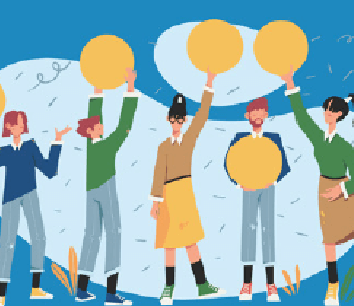 This list doesn’t pretend to be extensive,
including all the requirements
of inclusive graphic design. I
outlined those that would be great to
focus on when working on your website
accessibility improvement.
This list doesn’t pretend to be extensive,
including all the requirements
of inclusive graphic design. I
outlined those that would be great to
focus on when working on your website
accessibility improvement.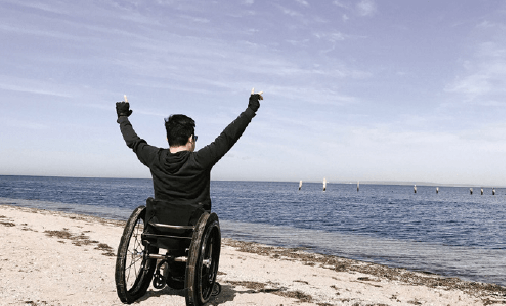 Gecko Traxx is a portable and
affordable manual wheelchair
accessory to help individuals access
the beach and other off road terrain.
A set of Gecko Traxx tyres packs up
into a small mesh bag. Carry them
in your backpack, leave them in the
car or bring them with your check-in
luggage. The tyres can be fitted to any
standard 24'' wheelchair, even while
still seated in it. This means you no
longer have to transfer from your
chair to fit them, saving you time and
energy to spend exploring.
The profile was inspired by a Gecko
foot and expands when in contact
with the ground, increasing surface
area and stopping the tyre sinking
into soft surfaces. The tyre returns to
its thin profile at the top and sides of
the wheelchair wheel and does not
impede the push-rim or the frame of
the wheelchair. It has an innovative
tyre cross-section that allows it to
be compact, yet work across a large
range of terrains: Sand and beach
environments • Gravel and national
park hikes • Soft grass on rural properties
or music festivals • Soft dirt
in rural areas • Hard packed snow
around ski resorts.
Read full text:
Gecko Traxx is a portable and
affordable manual wheelchair
accessory to help individuals access
the beach and other off road terrain.
A set of Gecko Traxx tyres packs up
into a small mesh bag. Carry them
in your backpack, leave them in the
car or bring them with your check-in
luggage. The tyres can be fitted to any
standard 24'' wheelchair, even while
still seated in it. This means you no
longer have to transfer from your
chair to fit them, saving you time and
energy to spend exploring.
The profile was inspired by a Gecko
foot and expands when in contact
with the ground, increasing surface
area and stopping the tyre sinking
into soft surfaces. The tyre returns to
its thin profile at the top and sides of
the wheelchair wheel and does not
impede the push-rim or the frame of
the wheelchair. It has an innovative
tyre cross-section that allows it to
be compact, yet work across a large
range of terrains: Sand and beach
environments • Gravel and national
park hikes • Soft grass on rural properties
or music festivals • Soft dirt
in rural areas • Hard packed snow
around ski resorts.
Read full text:
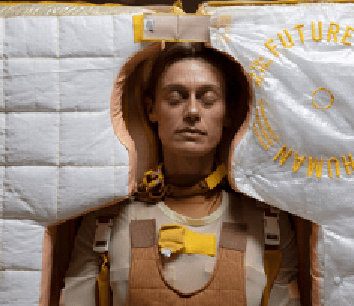 Future humans grown in artificial
wombs could replace the embrace
of a parent with Heavy Duty Love,
a machine created by sci-fi designer
Lucy McRae for the Venice Architecture
Biennale 2021.
The cushioned machine completely
surrounds its occupant in a supportive
embrace, helping them to become
more comfortable with contact and
intimacy.
Los Angeles-based McRae imagines
it could compensate for a lack
of human contact in early life, which
could become a reality in the near
future. Scientists believe that artificial
wombs will be developed within the
next decade. “I made this machine
because I am curious about the human
consequences of bypassing the womb
and that first hug of a ‘mother’,” McRae
explained. ...
Read full text:
Future humans grown in artificial
wombs could replace the embrace
of a parent with Heavy Duty Love,
a machine created by sci-fi designer
Lucy McRae for the Venice Architecture
Biennale 2021.
The cushioned machine completely
surrounds its occupant in a supportive
embrace, helping them to become
more comfortable with contact and
intimacy.
Los Angeles-based McRae imagines
it could compensate for a lack
of human contact in early life, which
could become a reality in the near
future. Scientists believe that artificial
wombs will be developed within the
next decade. “I made this machine
because I am curious about the human
consequences of bypassing the womb
and that first hug of a ‘mother’,” McRae
explained. ...
Read full text:
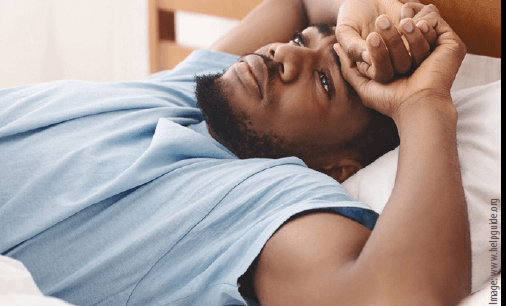 1 Difficulty falling asleep. About
three-fourths of all adults with
ADHD report the inability to “shut off
my mind so I can fall asleep at night.”
Many describe themselves as “night
owls” who get a burst of energy when
the sun goes down. Others report that
they feel tired throughout the day, but
as soon as the head hits the pillow, the
mind clicks on.
2 Restless sleep. When individuals
with ADHD finally fall asleep, their
sleep is restless. They toss and turn.
They awaken at any noise in the house.
Sleep is not refreshing and they awaken
as tired as when they went to bed.
3 Difficulty waking up. More than
80% of adults with ADHD in my
practice report multiple awakenings until
about 4 a.m. Then they fall into “the
sleep of the dead,” from which they have
extreme difficulty rousing themselves.
4 Intrusive Sleep. As long as persons
with ADHD were interested in or
challenged by what they were doing,
they did not demonstrate symptoms
of the disorder. If, on the other hand,
they lose interest in an activity, their
nervous system disengages, in search
of something more interesting. Sometimes
this disengagement is so abrupt
as to induce sudden extreme drowsiness,
even to the point of falling asleep.
1 Difficulty falling asleep. About
three-fourths of all adults with
ADHD report the inability to “shut off
my mind so I can fall asleep at night.”
Many describe themselves as “night
owls” who get a burst of energy when
the sun goes down. Others report that
they feel tired throughout the day, but
as soon as the head hits the pillow, the
mind clicks on.
2 Restless sleep. When individuals
with ADHD finally fall asleep, their
sleep is restless. They toss and turn.
They awaken at any noise in the house.
Sleep is not refreshing and they awaken
as tired as when they went to bed.
3 Difficulty waking up. More than
80% of adults with ADHD in my
practice report multiple awakenings until
about 4 a.m. Then they fall into “the
sleep of the dead,” from which they have
extreme difficulty rousing themselves.
4 Intrusive Sleep. As long as persons
with ADHD were interested in or
challenged by what they were doing,
they did not demonstrate symptoms
of the disorder. If, on the other hand,
they lose interest in an activity, their
nervous system disengages, in search
of something more interesting. Sometimes
this disengagement is so abrupt
as to induce sudden extreme drowsiness,
even to the point of falling asleep.
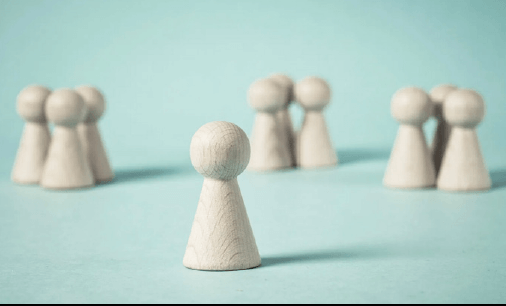 The urge to bond with the familiar
and to protect against the different
is not unique to humans. In fact, most
species follow similar patterns. ... Being
consciously aware of this trend is the
first step in stopping these harmful patterns.
... [so] ask the hard questions.
1. Is there proof that this person did
something wrong? 2. May I see this
proof? 3. Am I holding someone to a
higher standard of perfection than I
hold myself or people close to me? 4.
Could this person be reacting to the
valid perception that everyone dislikes
them? Are they behaving differently
because they sense many people are
actively rooting for them to fail or make
mistakes? 5. If this person has made
mistakes, are they unforgivable? Did they try to make amends? 6. Is it possible
that race, sexism, queerphobia, or other
forms of bias could be at the core of what
started the suspicion around someone?
7. Could atypical responses and behaviors
be a result of an invisible disability
like a mental illness, cognitive disability,
or neurodivergence? 8. Have other
people been guilty of much worse, but
I’ve been able to see past it? 9. Are my
friends prejudiced against people who
are different? 10. Did this person have
a lot of friends? ... Sometimes, there are
valid reasons to be afraid of someone ...
But many times, we have subconsciously
created a way to justify being uncomfortable
with difference. ...
The urge to bond with the familiar
and to protect against the different
is not unique to humans. In fact, most
species follow similar patterns. ... Being
consciously aware of this trend is the
first step in stopping these harmful patterns.
... [so] ask the hard questions.
1. Is there proof that this person did
something wrong? 2. May I see this
proof? 3. Am I holding someone to a
higher standard of perfection than I
hold myself or people close to me? 4.
Could this person be reacting to the
valid perception that everyone dislikes
them? Are they behaving differently
because they sense many people are
actively rooting for them to fail or make
mistakes? 5. If this person has made
mistakes, are they unforgivable? Did they try to make amends? 6. Is it possible
that race, sexism, queerphobia, or other
forms of bias could be at the core of what
started the suspicion around someone?
7. Could atypical responses and behaviors
be a result of an invisible disability
like a mental illness, cognitive disability,
or neurodivergence? 8. Have other
people been guilty of much worse, but
I’ve been able to see past it? 9. Are my
friends prejudiced against people who
are different? 10. Did this person have
a lot of friends? ... Sometimes, there are
valid reasons to be afraid of someone ...
But many times, we have subconsciously
created a way to justify being uncomfortable
with difference. ...
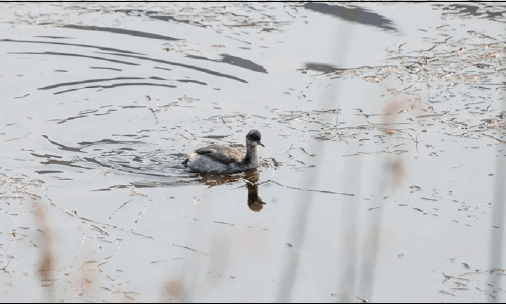 Globally, water use has risen at
more than twice the rate of
population growth and is still increasing.
Ninety percent of water used
by humans is used by industry and
agriculture, and when groundwater is
overused, lakes, streams and rivers dry
up, destroying ecosystems and species,
harming human health, and impacting
food security. Life on Earth will not
survive without water. ...
The skyrocketing demand for lithium,
one of the minerals needed for the
production of electric cars, is based on
the misperception that green technology
helps the planet. Yet, as Argentine
professor of thermodynamics and
lithium mining expert Dr. Daniel Galli
said at a scientific meeting, lithium
mining is “really mining mountains
of water.” Lithium Americas plans to
pump massive amounts of water —up
to 1.7 billion gallons annually— from
an aquifer in the Quinn River Valley in
Nevada’s Great Basin, the largest desert
in the United States. ...
In addition to the Thacker Pass
mine proposal, Lithium Americas has
a mine in the Atacama Desert, a joint
Canadian-Chilean venture named
Minera Exar in the Cauchari-Olaroz
basin in Jujuy, Argentina. Digging for
lithium began in Jujuy in 2015, and
there is already irreversible damage,
according to a 2018 hydrology report.
Watering holes have gone dry, and indigenous
leaders are scared that soon
there will be nothing left. ...
Read full text:
Globally, water use has risen at
more than twice the rate of
population growth and is still increasing.
Ninety percent of water used
by humans is used by industry and
agriculture, and when groundwater is
overused, lakes, streams and rivers dry
up, destroying ecosystems and species,
harming human health, and impacting
food security. Life on Earth will not
survive without water. ...
The skyrocketing demand for lithium,
one of the minerals needed for the
production of electric cars, is based on
the misperception that green technology
helps the planet. Yet, as Argentine
professor of thermodynamics and
lithium mining expert Dr. Daniel Galli
said at a scientific meeting, lithium
mining is “really mining mountains
of water.” Lithium Americas plans to
pump massive amounts of water —up
to 1.7 billion gallons annually— from
an aquifer in the Quinn River Valley in
Nevada’s Great Basin, the largest desert
in the United States. ...
In addition to the Thacker Pass
mine proposal, Lithium Americas has
a mine in the Atacama Desert, a joint
Canadian-Chilean venture named
Minera Exar in the Cauchari-Olaroz
basin in Jujuy, Argentina. Digging for
lithium began in Jujuy in 2015, and
there is already irreversible damage,
according to a 2018 hydrology report.
Watering holes have gone dry, and indigenous
leaders are scared that soon
there will be nothing left. ...
Read full text:
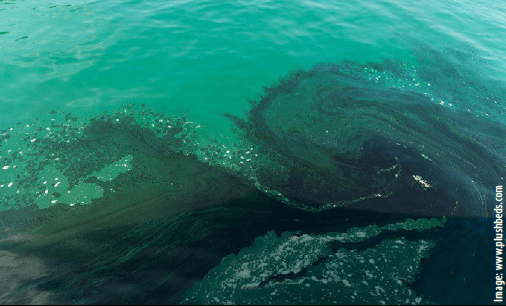 A report released April 28 by the
International Pollutants Elimination
Network (IPEN) and the National Toxics
Network (NTN) says that rising levels of
chemical and plastic pollution are major
contributors to declines in the world’s
fish populations and other aquatic
organisms. Dr. Matt Landos, co-author
of the report, says that many people erroneously
believe that fish declines are
caused only by overfishing. “In fact, the
entire aquatic food web has been seriously
compromised, with fewer and fewer
fish at the top, losses of invertebrates
in the sediments and water column, less
healthy marine algae, coral, and other
habitats, as well as a proliferation of
bacteria and toxic algal blooms. Chemical
pollution, along with climate change
itself a pollution consequence, are the
chief reasons for these losses.”
Aquatic Pollutants in Oceans and
Fisheries documents the numerous
ways in which chemicals compromise
reproduction, development, and
immune systems among aquatic and
marine organisms. It warns that the
impacts scientists have identified are
only likely to grow in the coming years
and will be exacerbated by a changing
climate. ... The report identifies six key
findings ...
Read full text
A report released April 28 by the
International Pollutants Elimination
Network (IPEN) and the National Toxics
Network (NTN) says that rising levels of
chemical and plastic pollution are major
contributors to declines in the world’s
fish populations and other aquatic
organisms. Dr. Matt Landos, co-author
of the report, says that many people erroneously
believe that fish declines are
caused only by overfishing. “In fact, the
entire aquatic food web has been seriously
compromised, with fewer and fewer
fish at the top, losses of invertebrates
in the sediments and water column, less
healthy marine algae, coral, and other
habitats, as well as a proliferation of
bacteria and toxic algal blooms. Chemical
pollution, along with climate change
itself a pollution consequence, are the
chief reasons for these losses.”
Aquatic Pollutants in Oceans and
Fisheries documents the numerous
ways in which chemicals compromise
reproduction, development, and
immune systems among aquatic and
marine organisms. It warns that the
impacts scientists have identified are
only likely to grow in the coming years
and will be exacerbated by a changing
climate. ... The report identifies six key
findings ...
Read full text
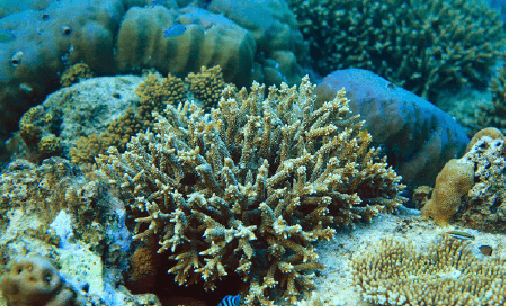 The Philippine government has
suspended work on a bridge that
would connect the islands of Coron
and Culion in the coral rich region of
Palawan. Activists, Indigenous groups
and marine experts say the project
would threaten the rich coral biodiversity
in the area as well as the historical
shipwrecks that have made the area a
prime dive site.
The Indigenous Tagbanua community,
who successfully fought against
an earlier project to build a theme
park, say they were not consulted
about the bridge project. Preliminary
construction began in November 2020
despite a lack of government-required
consultations and permits, and was
ordered suspended in April this year
following the public outcry.
The planned 4.2 billion peso ($88.6
million) road from Coron to the island
of Culion would run just over 20
kilometers (12.5 miles), of which only
about an eighth would constitute the
actual bridge span, according to a
government document obtained by
Mongabay. ...
“We don’t want that bridge here
because we fear that it will affect
many —our seas, our livelihoods, our
lands we inherited from our ancestors,”
Indigenous federation chairman
Larry Sinamay, who organized a rally
on April 5, told Mongabay. “Where
would we get our food when our place
is destroyed by this project?” ...
Read full text:
The Philippine government has
suspended work on a bridge that
would connect the islands of Coron
and Culion in the coral rich region of
Palawan. Activists, Indigenous groups
and marine experts say the project
would threaten the rich coral biodiversity
in the area as well as the historical
shipwrecks that have made the area a
prime dive site.
The Indigenous Tagbanua community,
who successfully fought against
an earlier project to build a theme
park, say they were not consulted
about the bridge project. Preliminary
construction began in November 2020
despite a lack of government-required
consultations and permits, and was
ordered suspended in April this year
following the public outcry.
The planned 4.2 billion peso ($88.6
million) road from Coron to the island
of Culion would run just over 20
kilometers (12.5 miles), of which only
about an eighth would constitute the
actual bridge span, according to a
government document obtained by
Mongabay. ...
“We don’t want that bridge here
because we fear that it will affect
many —our seas, our livelihoods, our
lands we inherited from our ancestors,”
Indigenous federation chairman
Larry Sinamay, who organized a rally
on April 5, told Mongabay. “Where
would we get our food when our place
is destroyed by this project?” ...
Read full text:
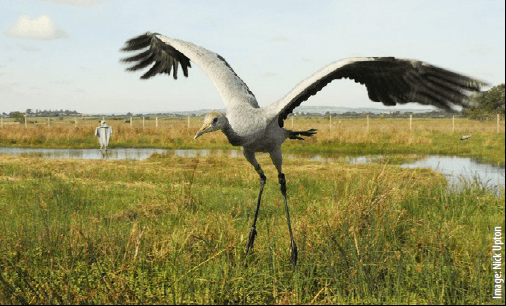 A pair of cranes are nesting on a
rewetted peat bog in the Republic
of Ireland’s midlands. It is hoped
they could be the first of the species
to breed in Ireland for centuries. The
cranes are on land owned by former
peat producer Bord na Móna. The
location is to remain confidential to
protect the birds.
In January, the company ceased
peat harvesting for good and has been
rehabilitating thousands of hectares of
boglands, rewetting the drained sites.
Their lead ecologist, Mark McCorry,
said the return of the nesting pair of
cranes was very significant. “While
we have these birds coming to Ireland
during the winter, we generally haven’t seen them in the breeding season,” he
said. “So last year, they were the first
pair that were in a nest during the
breeding season.”
... Mr McCorry said he was “reasonably
optimistic” that the birds would
successfully breed. ... However, there is
also the possibility that the species has
already begun to re-establish itself in
Ireland, as a juvenile crane was spotted
at an estuary in County Dublin last
autumn. ... Once common in Ireland,
the destruction of their habitat, being
hunted for meat and predators such as
foxes saw them become extinct some
time between 1600 and 1700. ...
Read full text:
A pair of cranes are nesting on a
rewetted peat bog in the Republic
of Ireland’s midlands. It is hoped
they could be the first of the species
to breed in Ireland for centuries. The
cranes are on land owned by former
peat producer Bord na Móna. The
location is to remain confidential to
protect the birds.
In January, the company ceased
peat harvesting for good and has been
rehabilitating thousands of hectares of
boglands, rewetting the drained sites.
Their lead ecologist, Mark McCorry,
said the return of the nesting pair of
cranes was very significant. “While
we have these birds coming to Ireland
during the winter, we generally haven’t seen them in the breeding season,” he
said. “So last year, they were the first
pair that were in a nest during the
breeding season.”
... Mr McCorry said he was “reasonably
optimistic” that the birds would
successfully breed. ... However, there is
also the possibility that the species has
already begun to re-establish itself in
Ireland, as a juvenile crane was spotted
at an estuary in County Dublin last
autumn. ... Once common in Ireland,
the destruction of their habitat, being
hunted for meat and predators such as
foxes saw them become extinct some
time between 1600 and 1700. ...
Read full text:
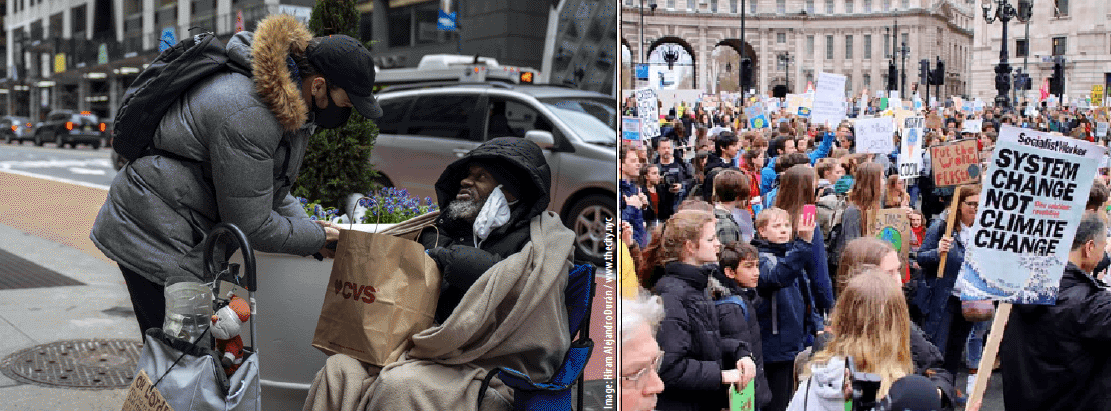
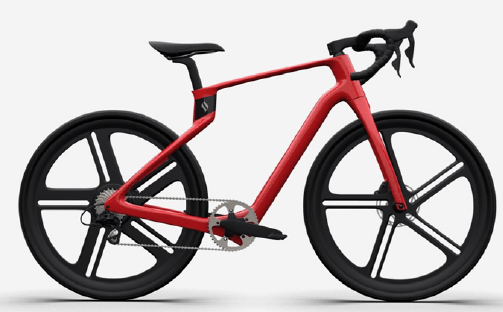 Send Superstrata your dimensions, riding style and preferences, and
they’ll 3D print you a carbon fibre bike frame made to fit. Prefer a stiffer ride? A bike for commuting,
or for touring? There are over 500,000 possible combinations. www.superstrata.bike
Send Superstrata your dimensions, riding style and preferences, and
they’ll 3D print you a carbon fibre bike frame made to fit. Prefer a stiffer ride? A bike for commuting,
or for touring? There are over 500,000 possible combinations. www.superstrata.bike
 Sweep things
like dust, crumbs, and pet hair up to the EyeVac. Infrared detectors sense the motion and
automatically vacuum it all up. Easy to clean with bagless canister. www.thegrommet.com
Sweep things
like dust, crumbs, and pet hair up to the EyeVac. Infrared detectors sense the motion and
automatically vacuum it all up. Easy to clean with bagless canister. www.thegrommet.com
 Specially designed for hard-toreach
areas, the Blomus is ideal
for both indoor and outdoor use
and its long spout makes watering
easy. The Blomus watering
can holds 1.5 liters.
store.moma.org
Specially designed for hard-toreach
areas, the Blomus is ideal
for both indoor and outdoor use
and its long spout makes watering
easy. The Blomus watering
can holds 1.5 liters.
store.moma.org
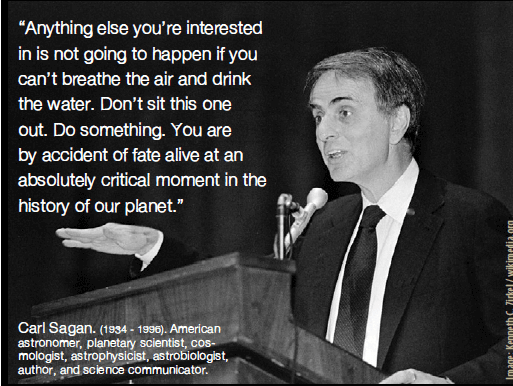
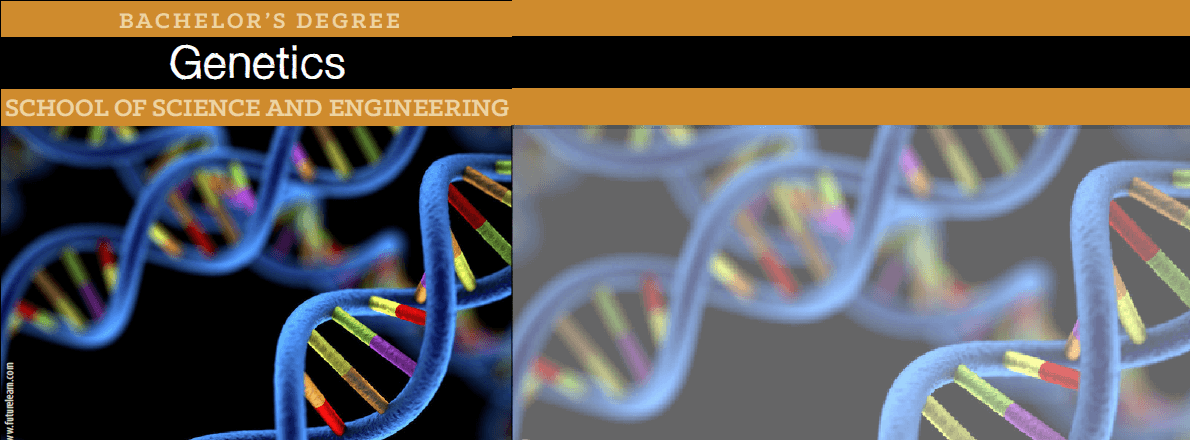 The Bachelor of Genetics program
is offered online via distance
learning. After evaluating both
academic record and life experience,
AIU staff working in conjunction
with Faculty and Academic Advisors
will assist students in setting up a
custom-made program, designed on
an individual basis. This flexibility to
meet student needs is seldom found
in other distance learning programs.
Our online program does not require
all students to take the same subjects/
courses, use the same books, or
learning materials. Instead, the online
Bachelor of Genetics curriculum is
designed individually by the student
and academic advisor. It specifically
addresses strengths and weaknesses
with respect to market opportunities
in the student’s major and intended
field of work.
Understanding that industry and
geographic factors should influence
the content of the curriculum instead
of a standardized one-fits-all design is
the hallmark of AIU’s unique approach
to adult education. This philosophy
addresses the dynamic and constantly
changing environment of working
professionals by helping adult students
in reaching their professional and
personal goals within the scope of the
degree program.
The Bachelor of Genetics program
is offered online via distance
learning. After evaluating both
academic record and life experience,
AIU staff working in conjunction
with Faculty and Academic Advisors
will assist students in setting up a
custom-made program, designed on
an individual basis. This flexibility to
meet student needs is seldom found
in other distance learning programs.
Our online program does not require
all students to take the same subjects/
courses, use the same books, or
learning materials. Instead, the online
Bachelor of Genetics curriculum is
designed individually by the student
and academic advisor. It specifically
addresses strengths and weaknesses
with respect to market opportunities
in the student’s major and intended
field of work.
Understanding that industry and
geographic factors should influence
the content of the curriculum instead
of a standardized one-fits-all design is
the hallmark of AIU’s unique approach
to adult education. This philosophy
addresses the dynamic and constantly
changing environment of working
professionals by helping adult students
in reaching their professional and
personal goals within the scope of the
degree program.
 Atlantic International University is accredited by the Accreditation Service for International
Schools, Colleges and Universities (ASIC). ASIC Accreditation is an internationally
renowned quality standard for colleges and universities. Visit ASIC’s Directory of Accredited
Colleges and Universities. ASIC is a member of CHEA International Quality Group
(CIQG) in the USA, an approved accreditation body by the Ministerial Department of the Home Office
in the UK, and is listed in the International Directory of the Council for Higher Education Accreditation
(CHEA). The University is based in the United States and was established by corporate charter in 1998.
Atlantic International University is accredited by the Accreditation Service for International
Schools, Colleges and Universities (ASIC). ASIC Accreditation is an internationally
renowned quality standard for colleges and universities. Visit ASIC’s Directory of Accredited
Colleges and Universities. ASIC is a member of CHEA International Quality Group
(CIQG) in the USA, an approved accreditation body by the Ministerial Department of the Home Office
in the UK, and is listed in the International Directory of the Council for Higher Education Accreditation
(CHEA). The University is based in the United States and was established by corporate charter in 1998.
 In some cases, accredited colleges
may not accept for transfer courses and degrees
completed at unaccredited colleges, and some
employers may require an accredited degree as
a basis for eligibility for employment. Potential
students should consider how the above may affect
their interests, AIU respects the unique rules and
regulations of each country and does not seek to
influence the respective authorities. In the event
that a prospective student wishes to carry out any
government review or process in regards to his
university degree, we recommend that the requirements
of such are explored in detail with the relevant
authorities by the prospective student as the
university does not intervene in such processes.
AIU students can be found in over 180 countries,
they actively participate and volunteer
in their communities as part of their academic
program and have allocated thousands of service
hours to diverse causes and initiatives. AIU
programs follow the standards commonly used by
colleges and universities in the United States with
regards to the following: academic program
structure, degree issued, transcript, and
other graduation documents.
AIU graduation documents can include
an apostille and authentication from the
US Department of State to facilitate their
use internationally.
In some cases, accredited colleges
may not accept for transfer courses and degrees
completed at unaccredited colleges, and some
employers may require an accredited degree as
a basis for eligibility for employment. Potential
students should consider how the above may affect
their interests, AIU respects the unique rules and
regulations of each country and does not seek to
influence the respective authorities. In the event
that a prospective student wishes to carry out any
government review or process in regards to his
university degree, we recommend that the requirements
of such are explored in detail with the relevant
authorities by the prospective student as the
university does not intervene in such processes.
AIU students can be found in over 180 countries,
they actively participate and volunteer
in their communities as part of their academic
program and have allocated thousands of service
hours to diverse causes and initiatives. AIU
programs follow the standards commonly used by
colleges and universities in the United States with
regards to the following: academic program
structure, degree issued, transcript, and
other graduation documents.
AIU graduation documents can include
an apostille and authentication from the
US Department of State to facilitate their
use internationally.
| Dr. Franklin Valcin President/Academic Dean |
Dr. José Mercado Chief Executive Officer Chairman of the Board of Trustees |
Ricardo González, PhD Provost |
| Dr. Ricardo Gonzalez Chief Operation Officer and MKT Director |
Linda Collazo Logistics Coordinator |
Dr. Silvia Restorff Academic Advisor |
| Dr. Miriam Garibaldi Viceprovost for Research |
Irina Ivashuk Alumni Association Coordinator |
Dr. Prakash Menon Academic Advisor |
| Dr. Ofelia Miller Director of AIU |
Clara Margalef Director of Special Projects of AIU |
Carlos Aponte Telecommunications Coordinator |
| Juan Pablo Moreno Director of Operations |
David Jung Corporate/Legal Counsel |
Dr. Nilani Ljunggren De Silva Academic Advisor |
| Paula Viera Director of Intelligence Systems |
Bruce Kim Advisor/Consultant |
Dr. Scott Wilson Academic Advisor |
| Felipe Gomez Design Director / IT Supervisor |
Thomas Kim Corporate/ Accounting Counsel |
Dr. Mohammad Shaidul Islam Academic Advisor |
| Daritza Ysla IT Coordinator |
Camila Correa Quality Assurance Coordinator |
Dr. Edgar Colon Academic Advisor |
| Nadeem Awan Chief Programming Officer |
Maricela Esparza Administrative Coordinator |
Deborah Rodriguez Academic Tutor Coordinator |
| Dr. Jack Rosenzweig Dean of Academic Affairs |
Chris Benjamin IT and Hosting Support |
Cyndy Dominguez Academic Tutor Coordinator |
| Dr. Edward Lambert Academic Director |
Mayra Bolivar Accounting Coordinator |
Kinmberly Diaz Admissions Support Tutor |
| Dr. Ariadna Romero Advisor Coordinator |
Roberto Aldrett Communications Coordinator |
Amalia Aldrett Admissions Coordinator |
| Nadia Gabaldon Academic Coordinator |
Giovanni Castillo IT Support |
Sandra Garcia Admissions Coordinator |
| Jhanzaib Awan Senior Programmer |
Jaime Rotlewicz Dean of Admissions |
Jose Neuhaus Admissions Support |
| Leonardo Salas Human Resource Manager |
Dr. Mario Rios Academic Advisor |
Junko Shimizu Admissions Coordinator |
| Benjamin Joseph IT and Technology Support |
Michael Phillips Registrar’s Office |
Veronica Amuz Admissions Coordinator |
| Rosie Perez Finance Coordinator |
Rene Cordon Admissions Support |
Alba Ochoa Admissions Coordinator |
| Chris Soto Admissions Counselor |
Jenis Garcia Admissions Counselor |
|
 The School of Business and Economics
allows aspiring and practicing
professionals, managers, and entrepreneurs
in the private and public sectors
to complete a self paced distance
learning degree program of the highest
academic standard.
The ultimate goal is to empower
learners and help them take advantage
of the enormous array of resources
from the world environment in order
to eliminate the current continuum of
poverty and limitations.
Degree programs are designed for
those students whose professional experience has been in business,
marketing, administration, economics,
finance and management.
The School of Business and Economics
allows aspiring and practicing
professionals, managers, and entrepreneurs
in the private and public sectors
to complete a self paced distance
learning degree program of the highest
academic standard.
The ultimate goal is to empower
learners and help them take advantage
of the enormous array of resources
from the world environment in order
to eliminate the current continuum of
poverty and limitations.
Degree programs are designed for
those students whose professional experience has been in business,
marketing, administration, economics,
finance and management.
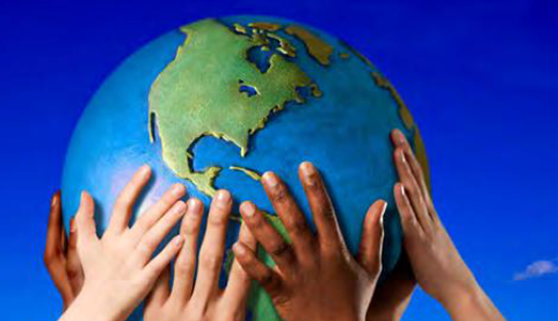 The School of Social and Human Studies
is focused on to the development of
studies which instill a core commitment
to building a society based on social and
economic justice and enhancing opportunities
for human well being.
The founding principles lie on the
basic right of education as outlined
in the Declaration of Human Rights.
We instill in our students a sense of
confidence and self reliance in their
ability to access the vast opportunities
available through information channels,
the world wide web, private, public,
nonprofit, and nongovernmental organizations in an ever expanding
global community.
Degree programs are aimed towards
those whose professional life has been
related to social and human behavior,
with the arts, or with cultural studies.
The School of Social and Human Studies
is focused on to the development of
studies which instill a core commitment
to building a society based on social and
economic justice and enhancing opportunities
for human well being.
The founding principles lie on the
basic right of education as outlined
in the Declaration of Human Rights.
We instill in our students a sense of
confidence and self reliance in their
ability to access the vast opportunities
available through information channels,
the world wide web, private, public,
nonprofit, and nongovernmental organizations in an ever expanding
global community.
Degree programs are aimed towards
those whose professional life has been
related to social and human behavior,
with the arts, or with cultural studies.
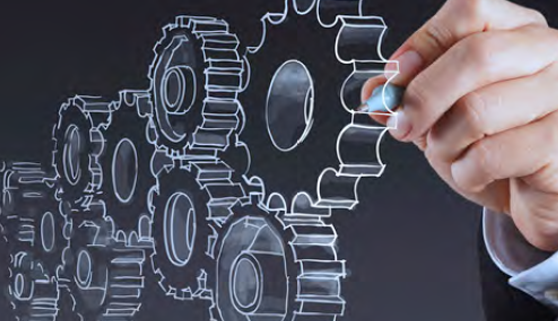 The School of Science and Engineering
seeks to provide dynamic, integrated,
and challenging degree programs
designed for those whose experience
is in industrial research, scientific production,
engineering and the general
sciences. Our system for research and
education will keep us apace with the
twenty-first century reach scientific
advance in an environmentally and
ecologically responsible manner to allow
for the sustainability of the human
population. We will foster among our
students a demand for ethical behavior,
an appreciation for diversity, an understanding
of scientific investigation, knowledge of design innovation, a
critical appreciation for the importance
of technology and technological change
for the advancement of humanity.
The School of Science and Engineering
seeks to provide dynamic, integrated,
and challenging degree programs
designed for those whose experience
is in industrial research, scientific production,
engineering and the general
sciences. Our system for research and
education will keep us apace with the
twenty-first century reach scientific
advance in an environmentally and
ecologically responsible manner to allow
for the sustainability of the human
population. We will foster among our
students a demand for ethical behavior,
an appreciation for diversity, an understanding
of scientific investigation, knowledge of design innovation, a
critical appreciation for the importance
of technology and technological change
for the advancement of humanity.
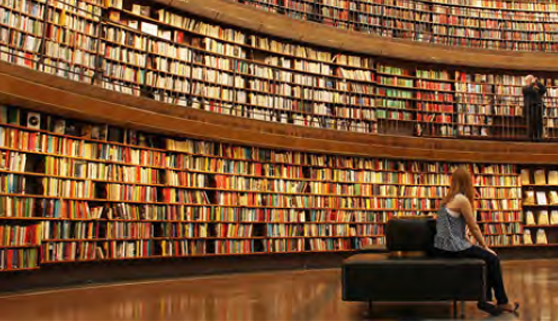 With access to a global catalog created and maintained collectively by more than
9,000 participating institutions, AIU students have secured excellent research
tools for their study programs.
With access to a global catalog created and maintained collectively by more than
9,000 participating institutions, AIU students have secured excellent research
tools for their study programs.